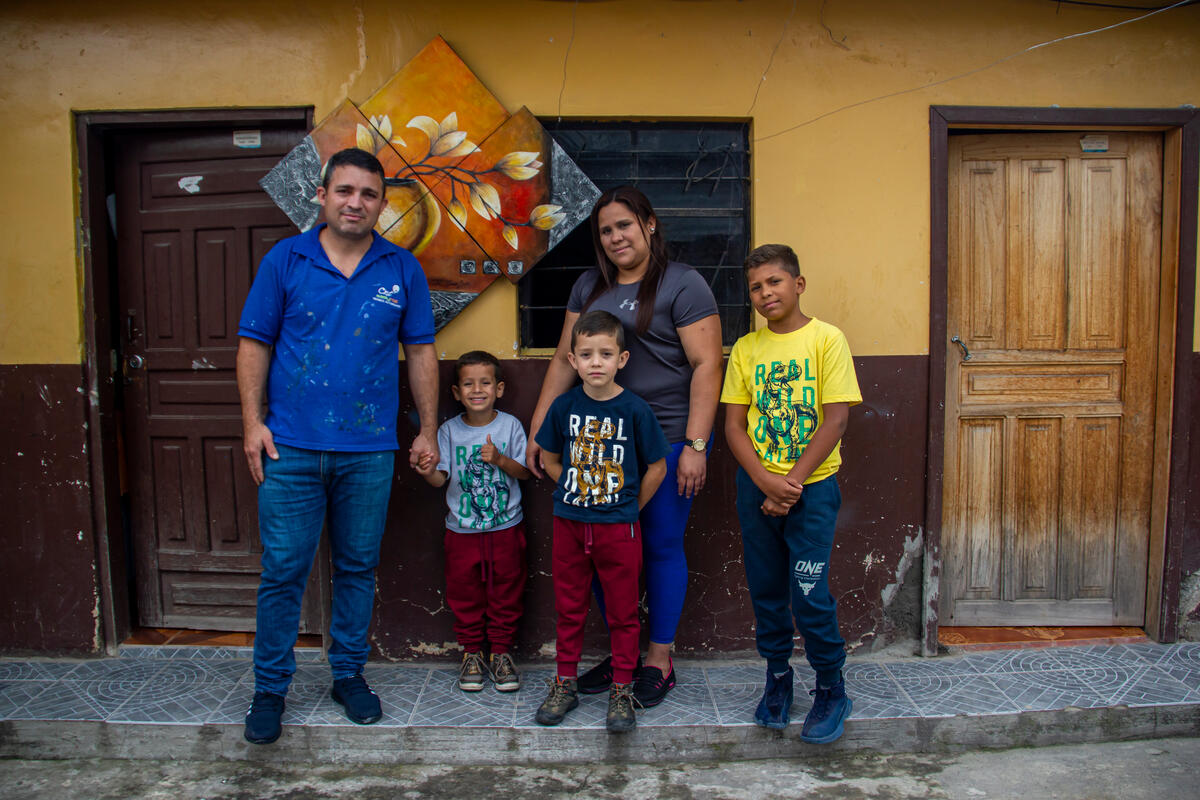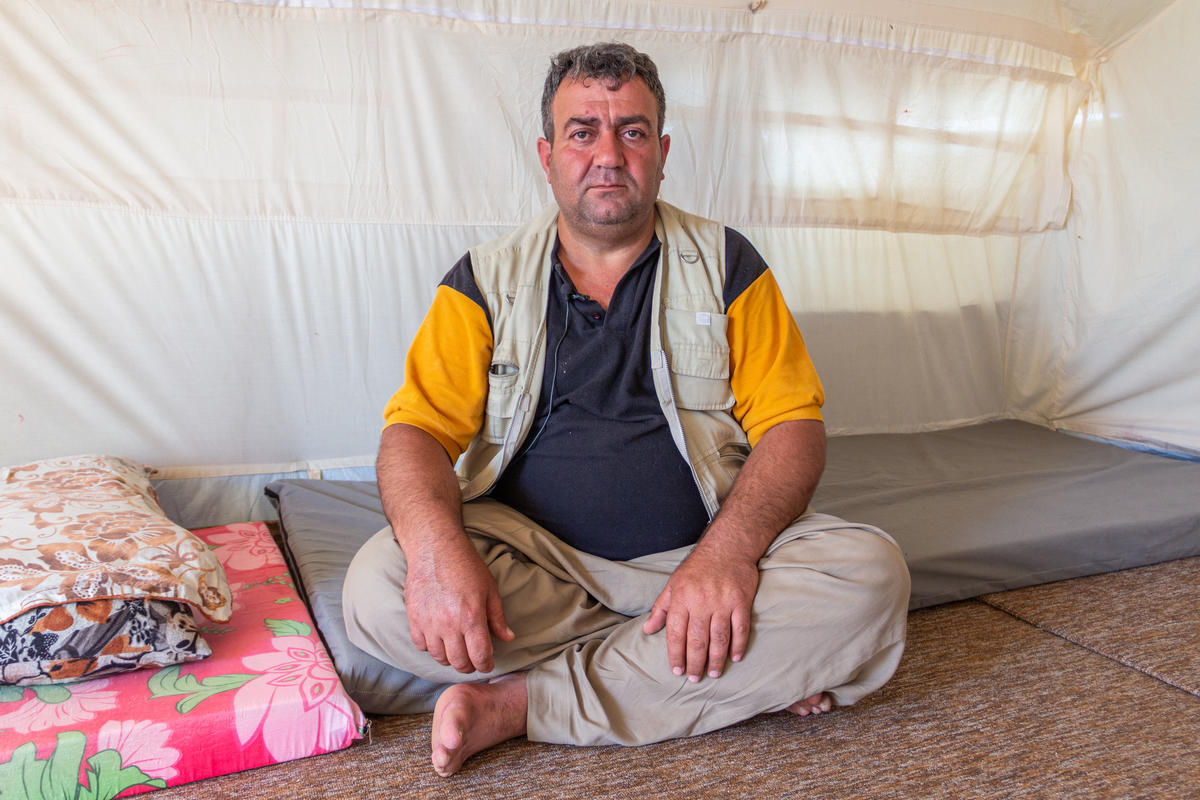Giving refugees from Colombia a stable life in Ecuador
Giving refugees from Colombia a stable life in Ecuador

SANTO DOMINGO DE LOS TSACHILAS, Ecuador, April 8 (UNHCR) - Her grandparents share Paula's* dream that someday she will be a veterinarian, but success is unlikely without stable employment. A new programme involving UNHCR is giving 200 refugee families like them new hope.
"Since she was a child, Paula has dreamed of becoming a veterinarian," said Amelia, looking at her 15-year-old granddaughter. Around the family's small two-room apartment wander two ducks, several chickens and at least two small dogs.
"All I want is to offer her the opportunity to make her dream come true."
Their chances of success are being raised by a new programme, the Graduation Model, which is using a comprehensive approach to make refugees self-sufficient. In addition to the previous relief assistance, participants will receive vocational training, financial education and legal assistance.
Amelia has raised her granddaughter Paula since they fled to Ecuador in 2006 after death threats by members of an illegal armed group in Colombia. Paula's mother, pregnant at the time, stayed in their home country.
Despite their efforts, it has been hard for Amelia and her husband - both elderly - to secure stable employment. The odd jobs they have taken on are barely enough for daily needs, let alone to provide for their granddaughter's future. Paula is often forced to miss entire weeks of school to help her grandmother.
Many Colombian refugees in Ecuador -- lacking social networks and resources - cannot find stable employment. Creating employment opportunities is essential to alleviating poverty and integrating these vulnerable people.
To address this need, UNHCR and a number of state and partner organizations, in coordination with the private sector, have launched the Graduation Model in Santo Domingo de los Tsáchilas, a refugee-hosting city 200 kilometres from the capital, Quito.
The pilot - involving the local government, the Hebrew Immigrant Aid Society (HIAS), the Jesuit Refugee Service (JRS), the national Banco del Pichincha and a financial education provider Fundación CRISFE -- supports self-employment, formal wage earning and microfinance to create livelihood opportunities.
It goes beyond providing simple relief assistance to a more targeted and self-empowering approach that offers consumption support, legal assistance, financial education and vocational training to refugees.
By participating in the Graduation Model, Amelia's family is hoping to secure a more stable income, allowing them to put some money aside for later needs like her granddaughter's education.
Amelia also hopes to someday open a seamstress shop to expand on the odd jobs she currently performs. "I don't have the means to buy a sewing machine at the moment," she says. "But once I find a more stable job, I can afford to continue my business."
The Graduation approach seeks to put 200 families on the path toward stable livelihoods by giving them the tools and resources to increase their incomes, expand their assets, and attain food security. The targeted, individual and multifaceted approach is expected to lead to substantive and tangible results in fostering economic empowerment and social inclusion of Ecuador's poorest refugees.
Besem Obenson, head of UNHCR's Field Office for Pichincha and Santo Domingo, said they are building on previous projects that used the Graduation Model approach. With the support of a mentor, who continuously guides them, participants receive training aimed at securing stable employment, developing financial awareness and maintaining healthy lifestyles.
Thanks to a recent agreement with Banco Pichincha, Ecuador's largest banking institution, these families will get individual savings accounts and basic financial education.
In a couple of weeks, Amelia and her family will start receiving food support and will attend their first classes on financial education and self-reliance. "If I die tomorrow, I would want to leave my kids with more than a roof over their heads," says Amelia, confident of a better future.
*All names have been changed for confidentiality
By Antoine Got in Santo Domingo de los Tsáchilas (Ecuador)








